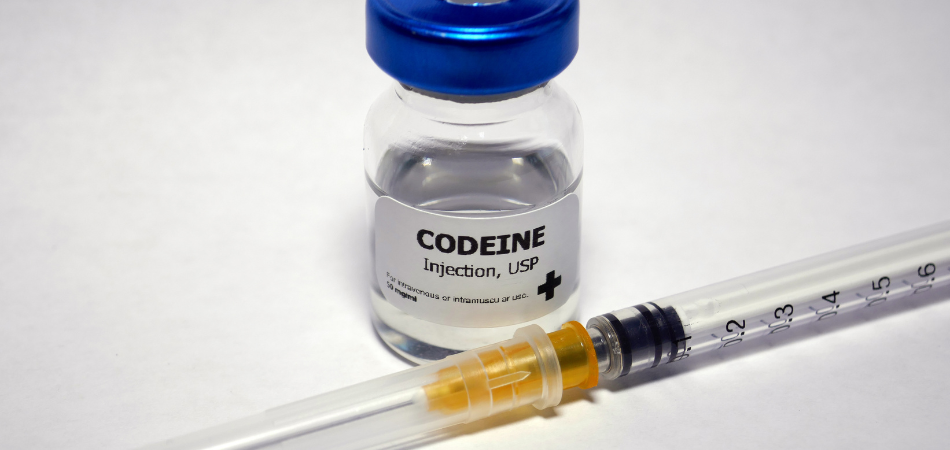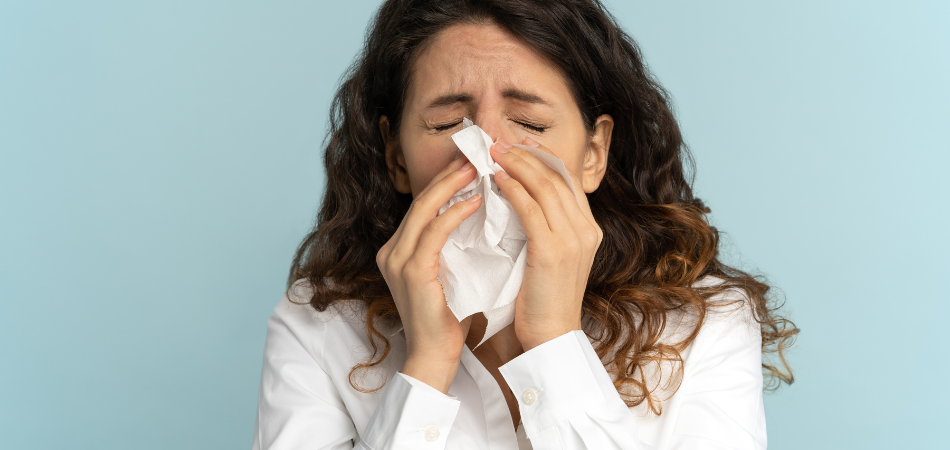
Written by:

Medically Reviewed by:
Last Updated:
February 14th, 2025
Codeine addiction
What is codeine?
Codeine is a mild opioid commonly prescribed for pain relief, often used to treat mild to moderate pain or as a cough suppressant. Derived from the opium poppy, it works by altering the way the brain and nervous system respond to pain. Codeine is typically found in combination with other medications like paracetamol or ibuprofen and is available in various forms, including tablets, syrups and capsules.
Although effective in medical use, codeine has a potential for abuse due to its relaxing and euphoric effects. Some individuals misuse it by taking higher doses than prescribed, seeking these pleasurable sensations, which can lead to dependency and addiction.
In the UK, codeine is classified as a controlled substance, meaning it’s only available with a prescription. In fact, in early 2024, Cough syrups containing codeine linctus were banned by chemists in the UK due to addiction concerns.
Codeine in the UK
In the past five years, there has been a notable rise in reports of drug abuse and dependence related to codeine-containing medicines.
The UK’s Medicines and Healthcare Products Regulatory Agency (MHRA) highlights that codeine, particularly in oral solution form, is being misused as part of a recreational drink known as ‘purple drank’. This concoction, typically made by mixing codeine-based cough syrup with soda or sugary drinks, creates a sedative and euphoric effect. Originally popularised in certain music and social circles, its misuse poses serious health risks.
The MHRA reports around 250 serious or fatal adverse reactions to codeine medicines in both 2022 and 2023, highlighting the need for increased awareness and caution.
What makes codeine addictive?
Codeine is addictive because it triggers the release of dopamine in the brain, which creates a sense of pleasure and relaxation. As the body adjusts to these effects, it begins to crave more of the drug to maintain that feeling. Even when taken as prescribed, using codeine over time can lead to dependence, especially if it’s used for longer than intended.
The brain’s reward system becomes rewired, making it difficult to stop without facing withdrawal symptoms like anxiety, restlessness and aches. This cycle of physical and psychological reliance is what makes codeine so addictive.
What are the signs of codeine addiction?
Recognising the signs of codeine addiction in yourself or someone close to you is key because what might start as a prescribed medication for pain relief can quickly turn into something much more harmful. Codeine addiction often creeps up subtly, with dependence growing without you even realising it. Knowing what to look for can help you take action early, preventing a mild dependence from escalating into a serious problem.
Here are the signs of codeine addiction:
Physical signs
- Drowsiness or feeling sedated
- Constipation and stomach pain
- Itchy skin or rashes
- Slowed breathing or shallow breaths
- Dry mouth and nausea
- Frequent headaches or dizziness
Psychological signs
- Craving codeine between doses
- Anxiety or restlessness when not using codeine
- Mood swings, including irritability or agitation
- Depression or feelings of hopelessness
- Difficulty concentrating or feeling mentally “foggy”
- Relying on codeine to handle stress or emotional pain
Behavioural signs
- Taking more codeine than prescribed or using it for longer than needed
- Visiting multiple doctors to get more prescriptions
- Hiding your use from friends or family
- Declining performance at work or school
- Withdrawing from social activities or isolating yourself
- Spending excessive money to acquire codeine
If you’ve noticed any of these signs in yourself or someone else, it’s important to seek medical advice as soon as possible. Early intervention can help stop the progression of addiction and offer a path toward recovery.
I’ve been prescribed codeine; should I be worried?
No, you don’t need to worry as long as you’re following the prescribed dosage. It’s important to never increase the dosage on your own, even if it feels like the codeine isn’t working as effectively as you’d hoped. Always discuss any concerns with your doctor, as they can adjust your treatment safely.
Also, remember to check in on yourself regularly. If you notice any signs of dependency or unusual cravings for the medication, it’s best to reach out to a healthcare professional for advice. Staying mindful can help you stay on track with your recovery while using codeine responsibly.
Below, we’ve created six questions that when answered with ‘yes’ could indicate an issue with codeine that must be made apparent to your doctor:
- Do you find yourself taking more codeine than prescribed to achieve the same effect?
- Are you feeling anxious or irritable when you miss a dose?
- Have you attempted to stop taking codeine but found it difficult?
- Do you feel the need to use codeine even when your pain is manageable?
- Are you experiencing cravings for codeine during times of stress?
- Has codeine use started to interfere with your daily responsibilities?
If you answered ‘yes’ to any of these questions, it’s important to discuss your concerns with your doctor.
How is codeine addiction treated at Liberty House?
At Liberty House, we understand that codeine addiction can take a significant toll on both your physical and emotional well-being. That’s why our approach to treatment is comprehensive and compassionate. We begin with a thorough assessment to fully understand your individual needs, followed by a medically observed detox to help you safely navigate withdrawal with the support of our medical team.
Once detox is complete, we offer a variety of therapies designed to help you heal from the inside out. From cognitive-behavioural therapy (CBT) to group sessions and one-on-one counselling, we’ll work with you to uncover the underlying causes of your addiction. To support your recovery further, holistic therapies like art, meditation and yoga are integrated, promoting balance and self-care during this challenging time.
We know that recovery doesn’t end when treatment does. That’s why we also provide ongoing aftercare planning, helping you to stay connected with the support you need to maintain your sobriety long after you leave.
If you or someone you know is struggling with codeine addiction, please don’t hesitate to contact Liberty House. We’re here to guide you every step of the way. Reach out today to learn more about our personalised treatment options and start your journey toward recovery.
Frequently asked questions
(Click here to see works cited)
- Roxby, Philippa. “Codeine Cough Syrup Abuse Prompts Ban on UK Sales.” BBC News, BBC, 20 Feb. 2024, www.bbc.co.uk/news/health-68349636.







